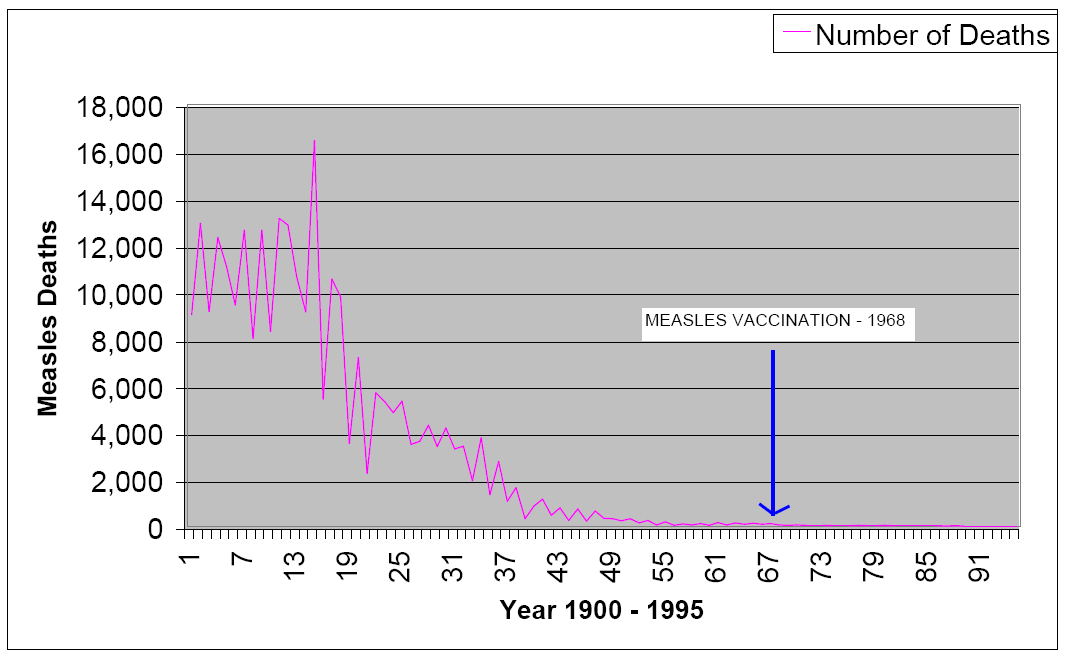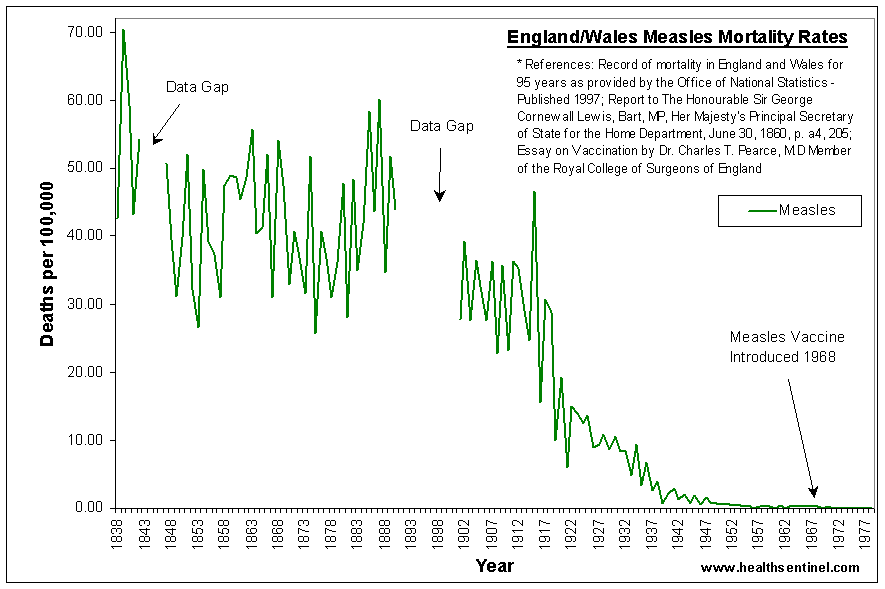| Friday, 12 September 2025 Home • About Us • Contact Us |
|
|
|
|
You are here:
Home  Articles
Articles
The following is a fairly typical and common statement made regarding vaccination:
The statistics are available to anyone from the Office for National Statistics, and with them we can see whether the above statement is true or not. Despite the availability of such information, it is sad to see the myth being pushed that measles vaccination eradicated measles mortality, (as an example of just one of the many diseases that showed dramatic decline in the early 20th century). Measles mortality had declined by around 99.4% before the measles vaccine. Click on each of the graphs to see an enlarged version: The pattern seen above is not unique to the United Kingdom but was seen in most countries and for most of the major diseases in the 20th century. This is by no means restricted to just measles. So what accounts for the decline in measles mortality? It was better nutrition, better sanitation and better living standards accessible to more and more people due to social reforms. The decline in mortality by purely social factors proves that such diseases are relatively harmless given that the population is on adequate nutrition and living in good sanitation and hygiene. It is also proven in the literature that measles mortality is inversely linked to wealth. Thus poorer people not able to afford better quality food and better living conditions suffer complications of such diseases leading to higher mortality. This shows that only those who are immunosuppressed and tending towards malnutrition will suffer fatalities from such diseases. With the social reforms in the early 20th century, these diseases eventually became relatively harmless childhood diseases which if contracted in early childhood would offer natural lifetime immunity, preventing the contraction of such diseases later in life. Those who suffer complications arising from such diseases are predominantly those who are already weak and immunodepressed. However, such cases can be treated with high dosage Vitamin C and high dosage Vitamin A as has been proven and established decades ago by the likes of Frederick Klenner and others. When met with this undeniable data on measles mortality decline, refuge is often made in the statement "measles vaccination reduced disease incidence", whereas factors in the early to mid twentieth century reduce mortality (deaths). This is a matter we will be addressing in more detail in the various articles appearing on this site. For now all we will say is that the measles vaccination does not confer true immunity, and while it may prevent disease incidence, it does so only temporarily. That's the reason why "booster" shots are often required. Further, natural immunity is acquired by the body through a different mechanism than that in "artificial immunity" (i.e. vaccination). Immunity through vaccination is based upon the flawed and false claim that antibody production is synonymous with and directly equal to immunity. This is the clear message that is put across - i.e. the presence of large amounts of antibodies equates to immunity (refer to these articles). The body's complex and holistic immune system is not just comprised of antibodies alone (this was the primitive understanding of the bodies immune system before biochemistry became a well established and studied discipline) - its a whole lot more than that. That's why in naturally contracted measles (wild measles) the whole body immune system is involved and confers long-term natural immunity. vaccination, whilst preventing disease incidence (non-permanently), simply pushes the actual occurrence of the disease into an older age group, as research has shown.
Link to this article: Show: HTML Link • Full Link • Short Link
Related Articles:
You must be registered and logged in to comment. |
|
||||||||||||||||||||
 |
 | |
|
|
 Next to clean
Next to clean 








